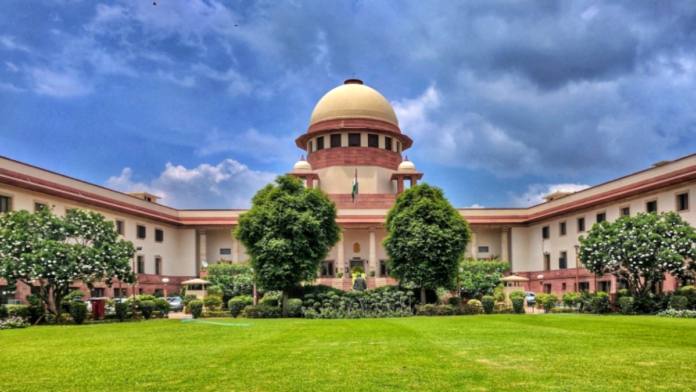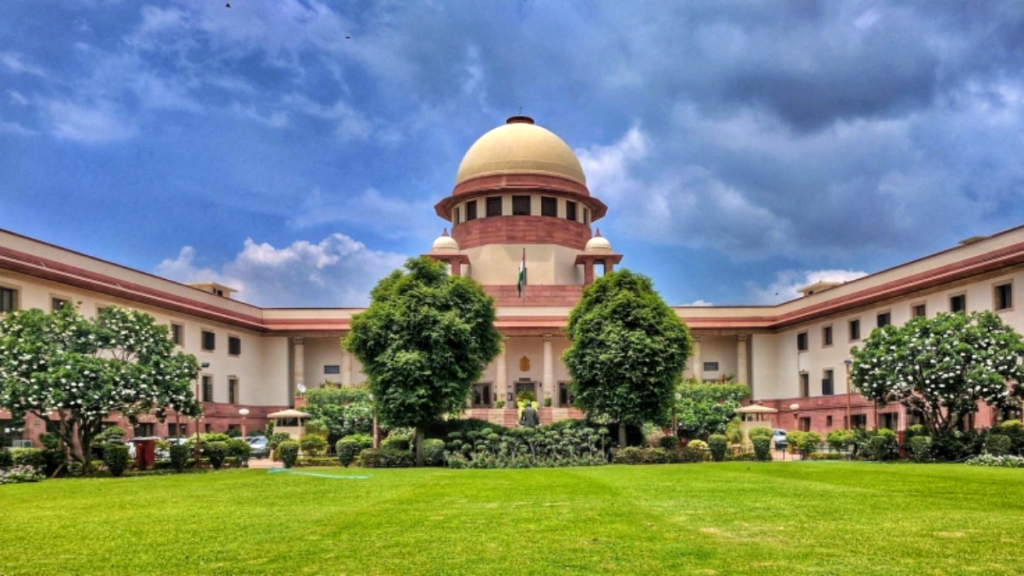
New Delhi: In a significant ruling, the Supreme Court upheld the Uttar Pradesh Board of Madrasa Education Act, 2004, declaring it constitutional, thus allowing madrasas in the state to continue operations under the Act. The court clarified, however, that while the Act is valid for regulating education standards, its authority does not extend to conferring higher education degrees like ‘fazil’ and ‘kamil’, as this conflicts with the University Grants Commission (UGC) Act.
This verdict was delivered by a bench led by Chief Justice of India (CJI) DY Chandrachud, along with Justices JB Pardiwala and Manoj Misra, marking a nuanced stance on balancing state regulation with minority educational rights.
Key Highlights of the Supreme Court’s Ruling
- Constitutionality of the Act Affirmed: The Supreme Court reversed the Allahabad High Court’s earlier judgment, which had invalidated the Madrasa Act as unconstitutional and allegedly in violation of secularism. The bench clarified that the Act aligns with the constitutional mandate to support educational standards and minority rights.
- Restriction on Higher Education Degrees: The Supreme Court ruled that the Madrasa Act cannot regulate higher education in relation to specific Islamic studies degrees, such as ‘fazil’ (bachelor’s degree equivalent) and ‘kamil’ (master’s degree equivalent). According to the court, such degrees fall under the purview of the UGC, as specified by Entry 66 of List 1 of the Constitution, which gives the central government authority over national education standards.
- Role in Minority Education: The Act is consistent with the state’s obligation to ensure students from minority institutions receive a well-rounded education, allowing them to engage actively in society. The court noted that Article 21A (Right to Education) and Article 30 (minority rights to establish and administer educational institutions) work together to ensure that madrasas can offer secular education that meets state standards without compromising their minority character.
- State’s Regulatory Power Upheld: The court found the Madrasa Act’s provisions for regulating education standards, examinations, and certifications reasonable and necessary for supporting the minority community’s educational needs. It noted that the Act is within the legislative competence of the state, traceable to Entry 25 of List 3 (Concurrent List) of the Constitution.
- Clarification on Secularism: Rejecting the Allahabad High Court’s reasoning, the Supreme Court emphasized that the Madrasa Act does not infringe on the principle of secularism. Instead, the Act serves to enhance the educational standards within madrasas, which aligns with the state’s duty to foster inclusive education for all.
Background of the Case
The Supreme Court’s verdict responds to multiple petitions challenging the Allahabad High Court’s March 2024 decision that had declared the Madrasa Act unconstitutional, citing concerns over secularism. Following this ruling, on April 5, the Supreme Court temporarily halted the High Court’s decision, ensuring that the Act remained in force and protecting the academic futures of approximately 1.7 million madrasa students across the state.
The lead petitioner, Anjum Kadari, and others argued that the Allahabad High Court’s verdict would disrupt madrasas’ educational autonomy and impact students’ right to receive culturally relevant education. Today’s Supreme Court ruling aims to safeguard the role of madrasas while maintaining educational quality within the framework of India’s secular constitutional values.

This decision underscores the delicate balance between state regulation and minority rights in the field of education, emphasizing that the Uttar Pradesh government may continue to oversee educational standards in madrasas without extending its authority over advanced degree programs.









































